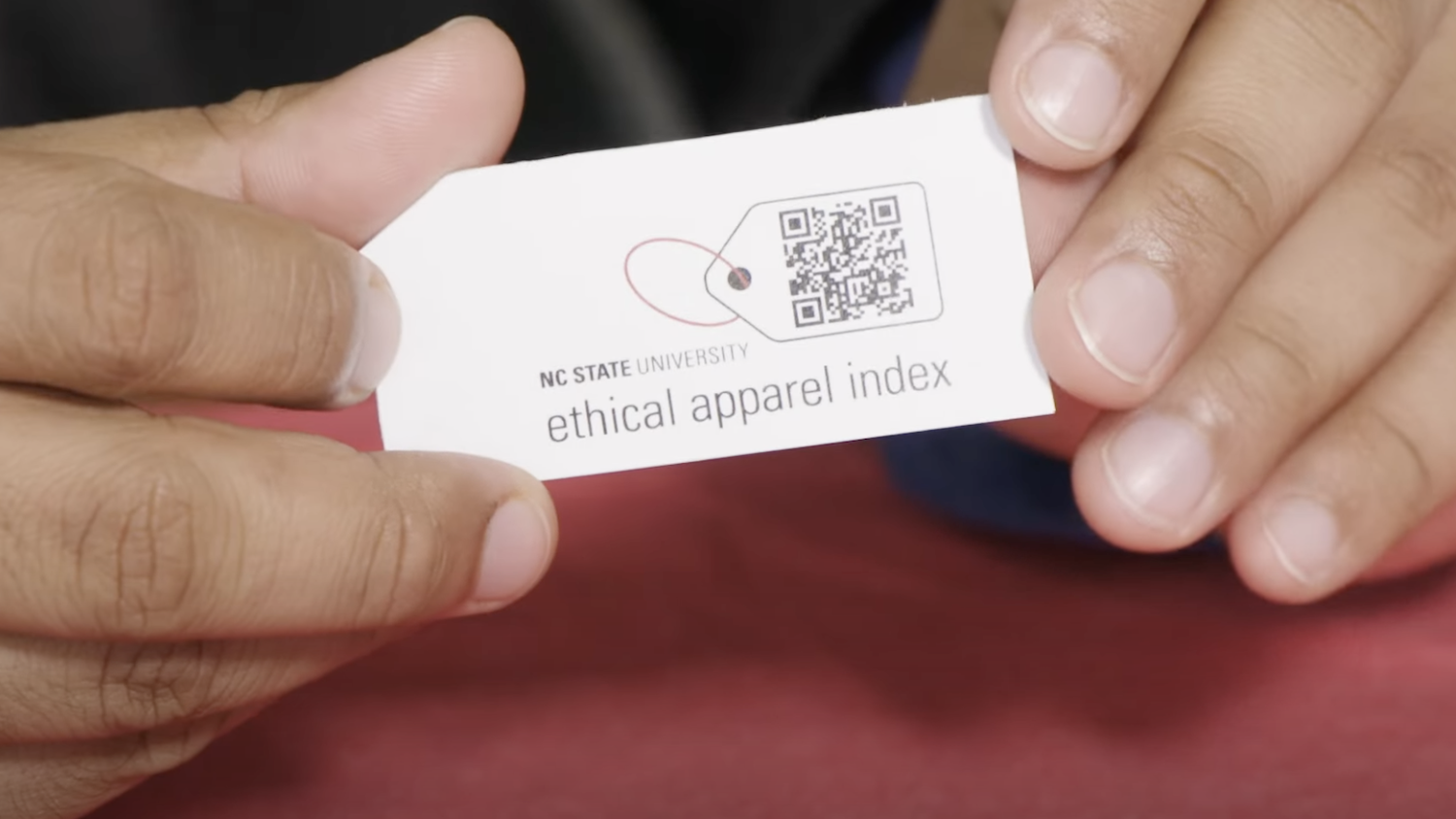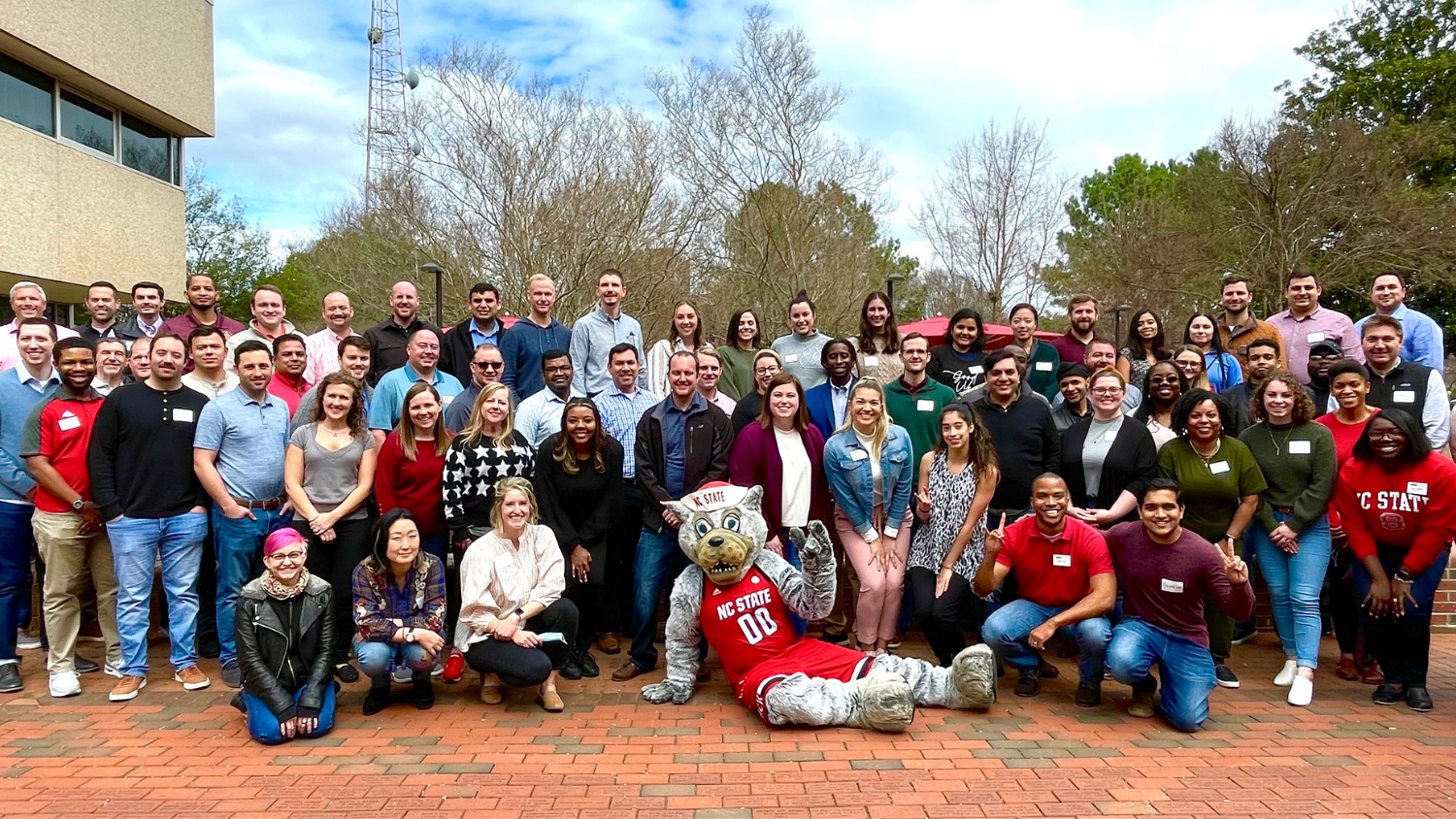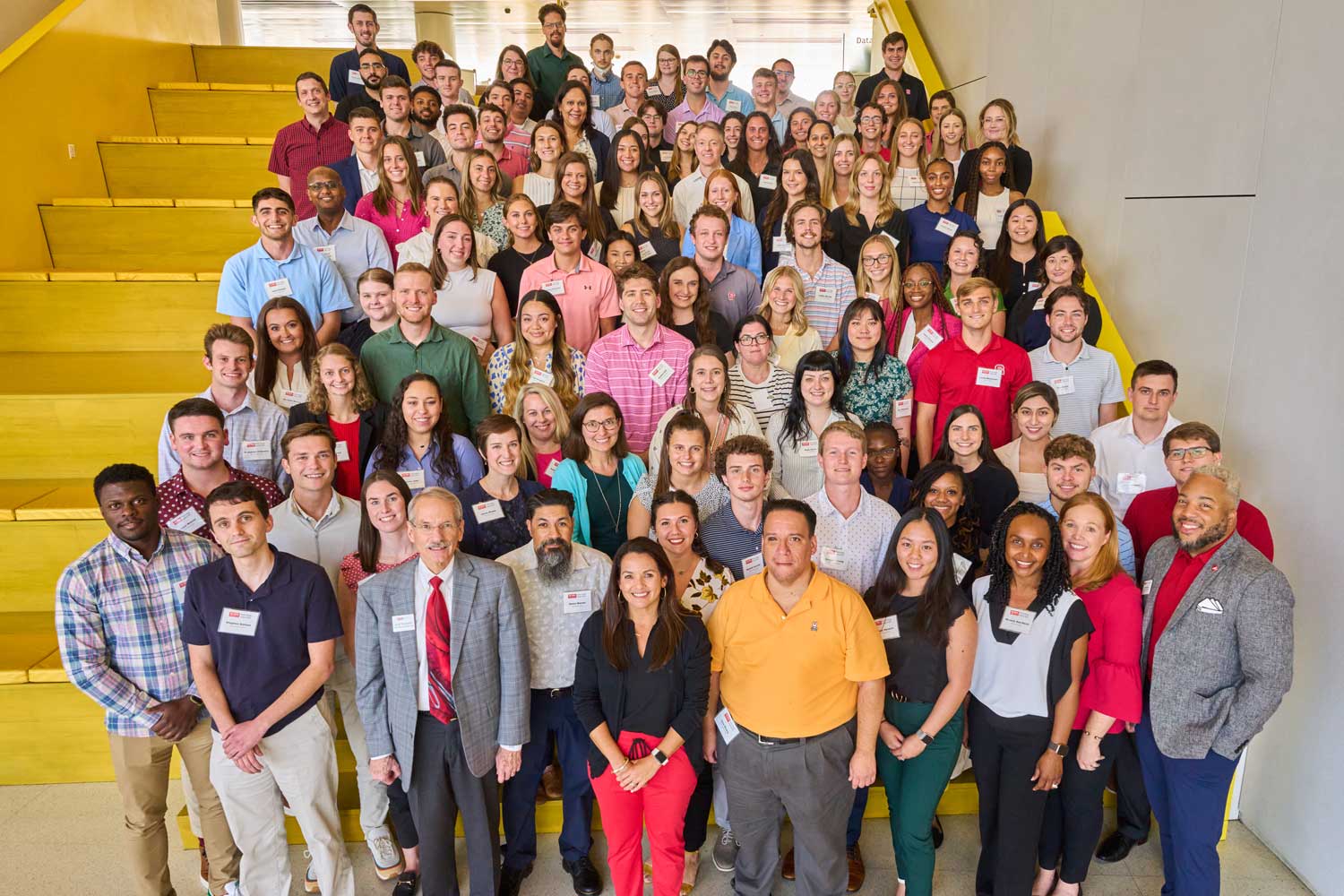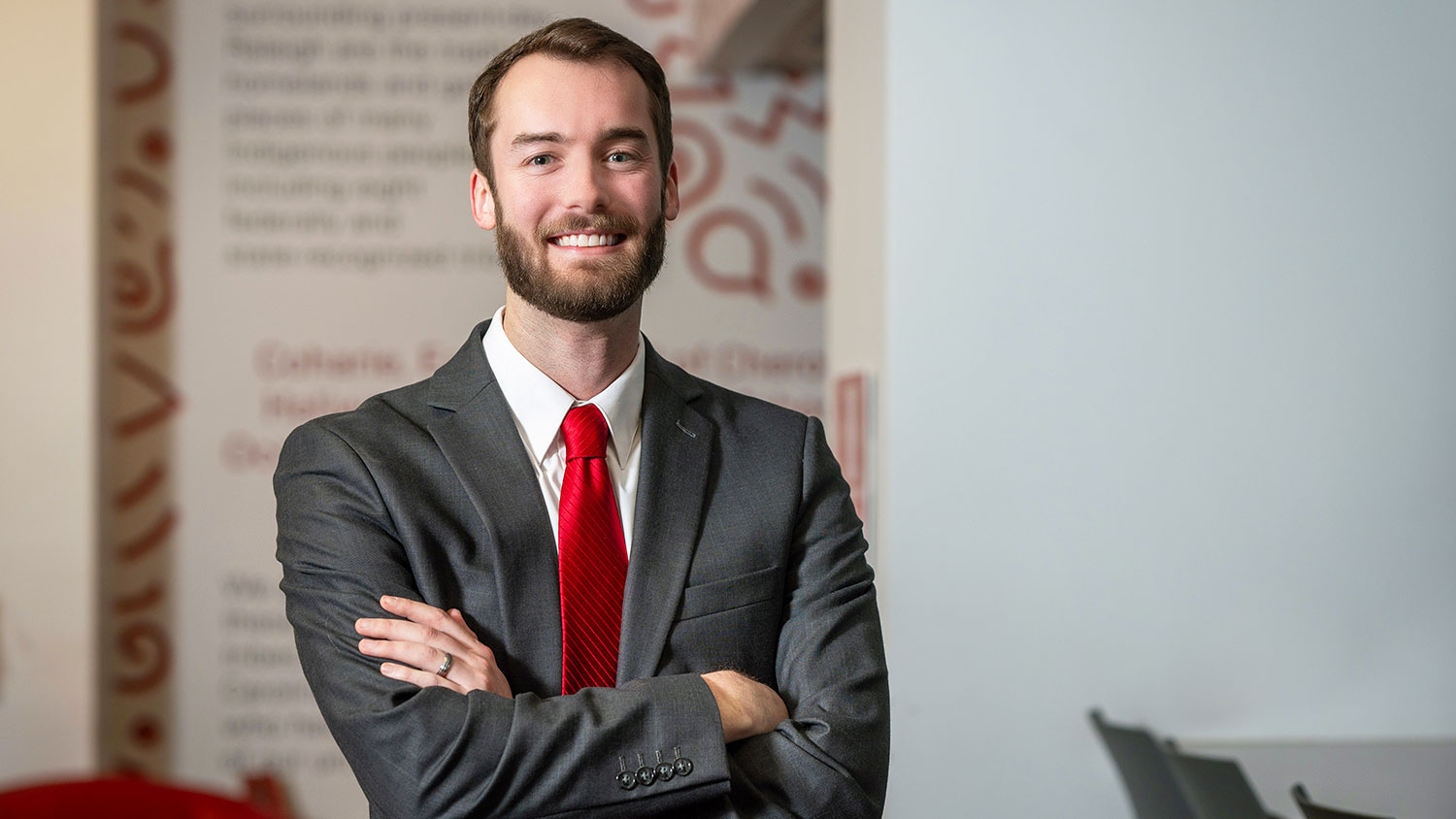Poole College Transforms Research Into Real-World Impact
Faculty in the Poole College of Management leverage research expertise and business know-how to drive thought leadership that meets the needs of the modern market.
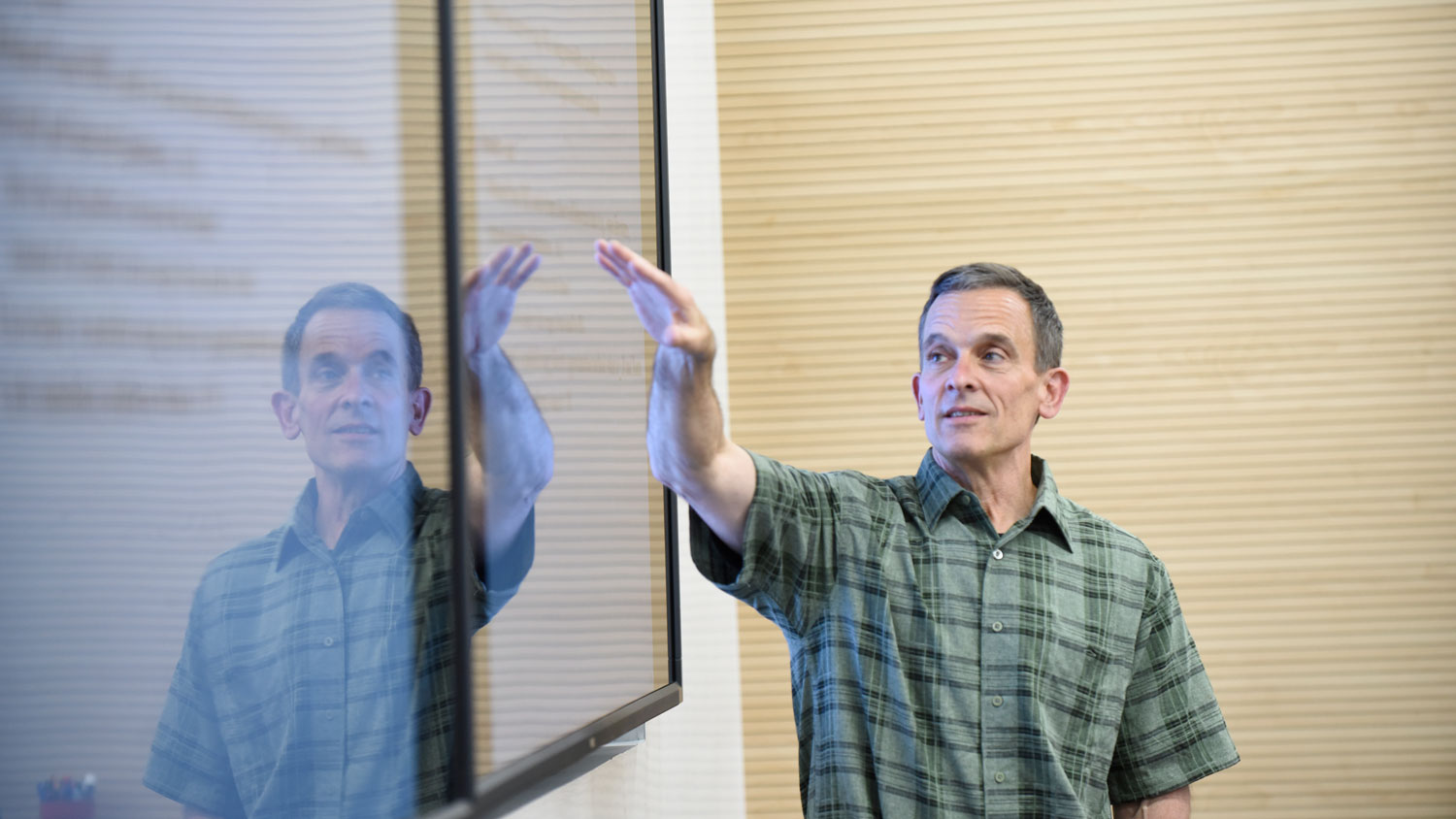
“Our research is all about one word: impact,” said Richard Warr, associate dean for faculty and research and professor of finance. “Our students and faculty create experiences with real companies, often driven through our initiatives, that are really impactful for companies, but also impactful for students to develop skills we can’t teach in the classroom.”
Anchored by five core initiatives — the Business Analytics and AI Initiative, Business Sustainability Collaborative, Entrepreneurship Clinic, Enterprise Risk Management Initiative and Supply Chain Resource Cooperative — Poole’s research and thought leadership covers a broad spectrum of topics, from finance to sustainability. Take a look at a few of the ways Poole researchers move the modern marketplace forward.
Poole’s research and thought leadership covers a broad spectrum of topics, from finance to sustainability.
Putting Customers at the Heart of Research
Success in business starts with understanding people, which is why many Poole researchers focus on cognitive and behavioral trends. Heather Dretsch, assistant professor of marketing, is a prime example.
“[Research] is demand- and impact-driven for me,” Dretsch said. “I aim to bring consumer psychology to light in meaningful, relevant, actionable ways for businesses.”
Dretsch’s research into the social media habits of Gen Z, for instance, suggests that Gen Z users wish more companies would reach out to them through the casual atmosphere of TikTok. That same research, however, reveals that these users want their favorite brands to maintain a more formal presence on Instagram, where Gen Z continues to spend most of their social media time. Meanwhile, Dretsch’s research into Gen Alpha — the generation following Gen Z — hints that their future choices as consumers may be patterned by strong feelings of brand loyalty imparted by their Millennial parents.

“I think big brands had a good handle on Baby Boomers,” Dretsch said. “But a lot of brands are realizing how much faster consumer generations’ habits, lifestyles, values and digital media usage is changing. We can use our Consumer Behavior Lab to get a better handle on that.”
Poole researchers have harnessed consumer psychology to shed light on challenges.
Poole researchers have harnessed consumer psychology to shed light on other challenges, too, such as promoting COVID-19 vaccines to hesitant populations. Research published by Poole scholars in the New England Journal of Medicine identified a variety of solutions for vaccine providers, like using relatable analogies to tell more impactful stories about the importance of vaccines.
Providing Solutions Businesses Need
Poole researchers also work to stay attuned to the changing needs of today’s businesses and focus their research on serving those needs.
“Our annual risk reports are a great example of our practitioner-driven research,” Warr said. “They’re based on large samples of survey data from chief risk officers, and the reports ask, ‘What are they looking at for the coming year and further out on the horizon?’”
In the most recent report, published by the Enterprise Risk Management Initiative in mid-2022, respondents cited talent supply issues as their primary long-term concern. This makes sense in the face of the Great Resignation, as many companies are focused on upskilling their workforces while experimenting with new ways to attract top talent.
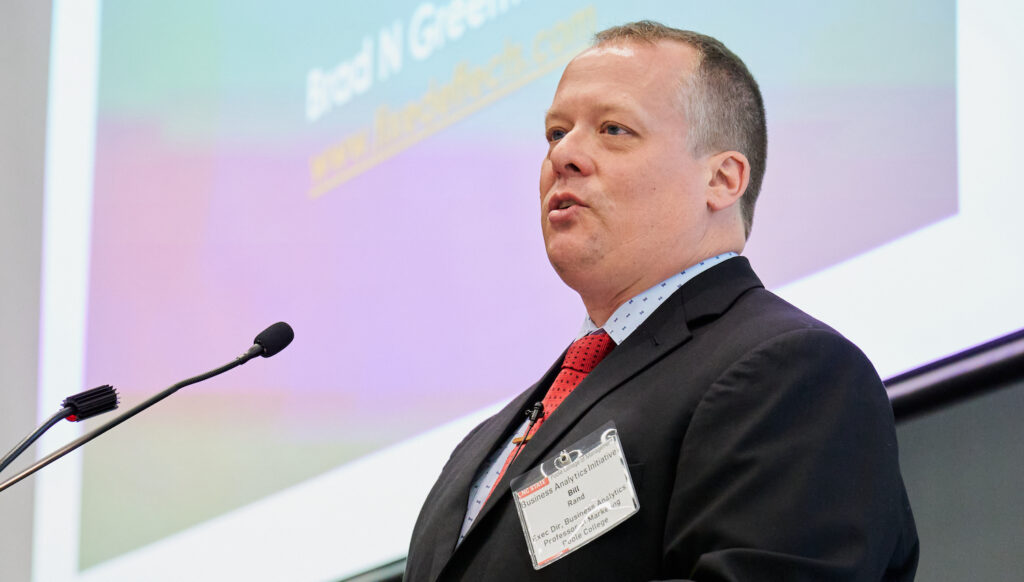
Bill Rand, executive director of the Business Analytics and AI Initiative (BAI), engages with companies to promote research emerging from the BAI and generate new lines of research tailored to their evolving needs.
For a project with the nonprofit Clinton Health Access Initiative, BAI researchers developed a system to collect COVID-19 data from a large pool of scientific journals and package it together in a single portal. The nonprofit’s staff then used the portal to analyze trends and coordinate their COVID-19 mitigation strategies throughout sub-Saharan Africa.
“Oxygen shortages, for example, became a problem during COVID-19,” Rand said. “By being able to use data to point to the fact that ‘oxygen’ is being mentioned in, say, several hundred news articles from a specific area, that portal helped [the Clinton Health Access Initiative] better allocate resources to that area.”
The ethical management of supply chains is another global challenge Poole researchers are helping industries navigate.
The ethical management of supply chains is another global challenge Poole researchers are helping industries navigate. In 2021, the Supply Chain Resource Cooperative launched the Ethical Apparel Index, a tool that helps businesses and consumers make better choices to improve working conditions in apparel factories worldwide. The index packages data from numerous fair labor surveys into a single source for easily comparing working conditions across brands.
“The ethics of the apparel supply chain is a complicated story,” Warr said. “But our researchers help explain that story.”
Investing in Future Industry Leaders
Poole leaders are committed to leveraging the college’s thought leadership to grow future entrepreneurs and nourish tomorrow’s marketplace.

“Students can volunteer to help us collect and analyze data and partner with faculty to get that hands-on analytics experience,” Dretsch said. “And then they get to use that data to make actual recommendations to businesses.”
The college’s Entrepreneurship Clinic fully embodies this immersive approach to training future leaders.
“The clinic uses the hospital teaching model,” Warr said, “where students work in teams along with startups to help them with whatever they need help with — like designing plans, marketing plans, strategizing. Those students often get better jobs, too, because businesses know they understand the real problems they face.”
In 2022, Poole created a master’s of management program with a risk analytics concentration to immerse students in the challenge of sustainable governance — a major long-term focus of organizational strategy for today’s leading companies. It’s just another example of how Poole leaders continually strive to align research and academics to serve the changing needs of industry.
“We have a lot of brainpower in our college,” Warr said. “We use it to create a safe environment to build new knowledge, generate a conversation and help businesses and the people who manage them understand their world.”
- Categories:
